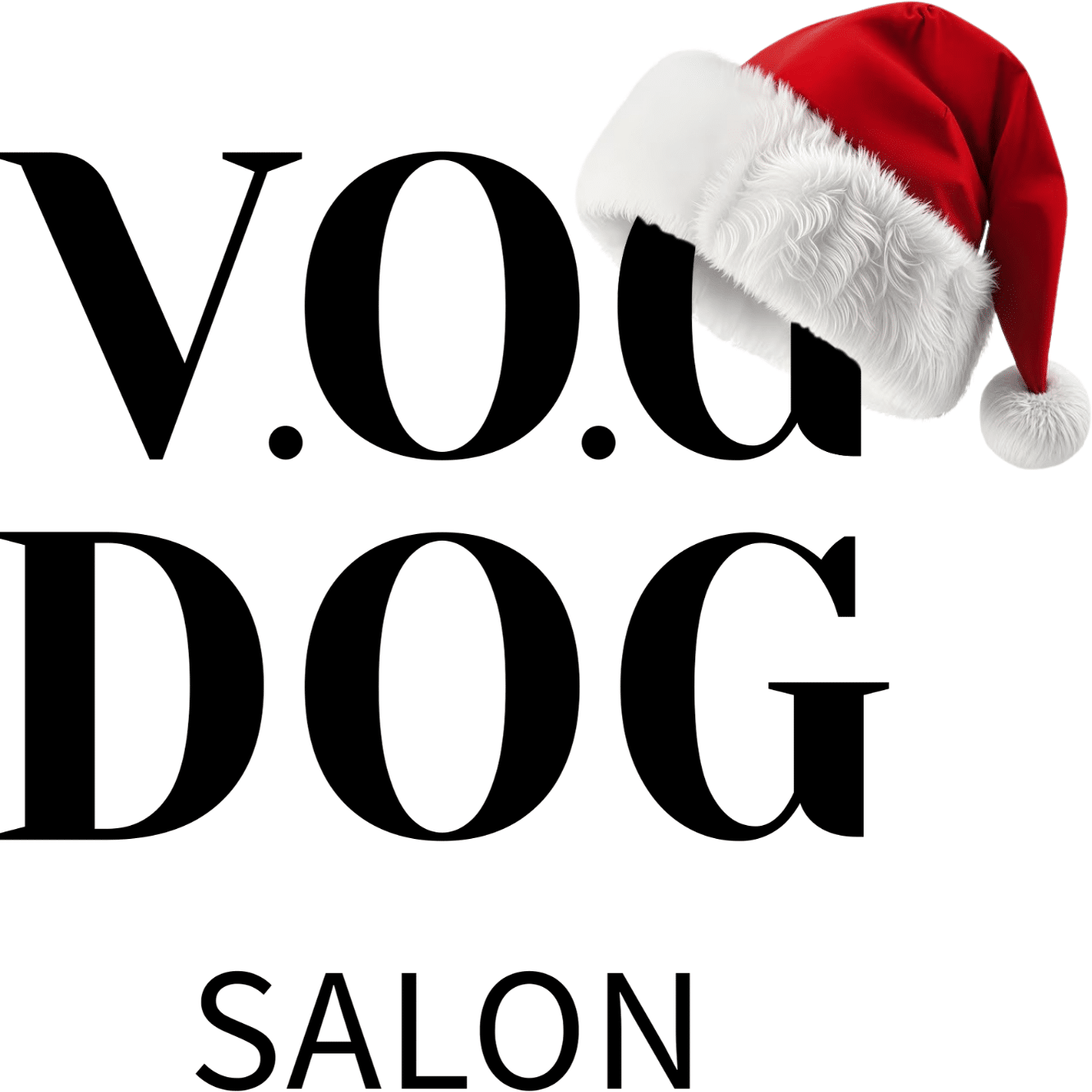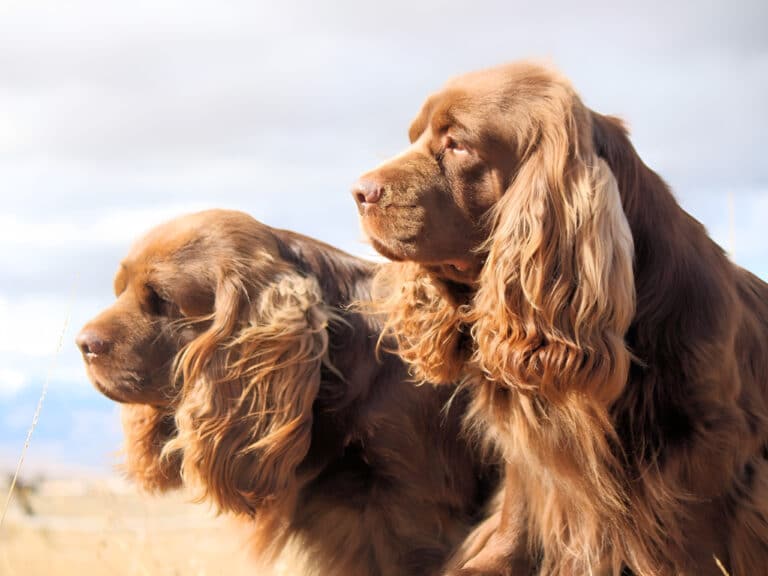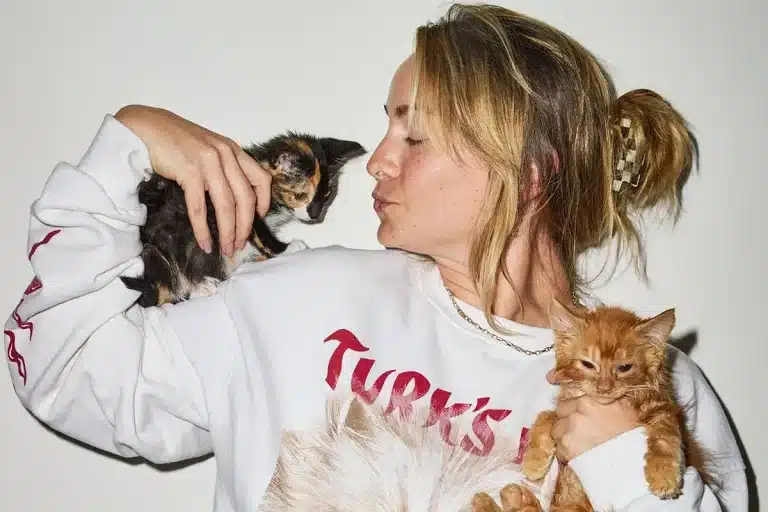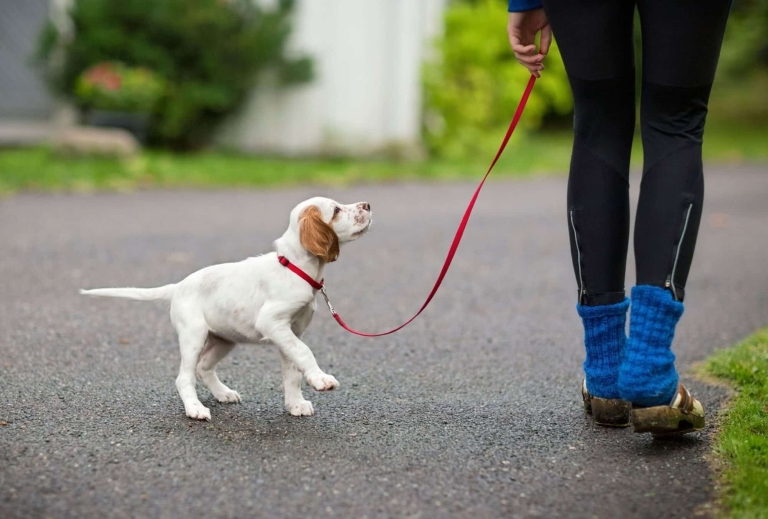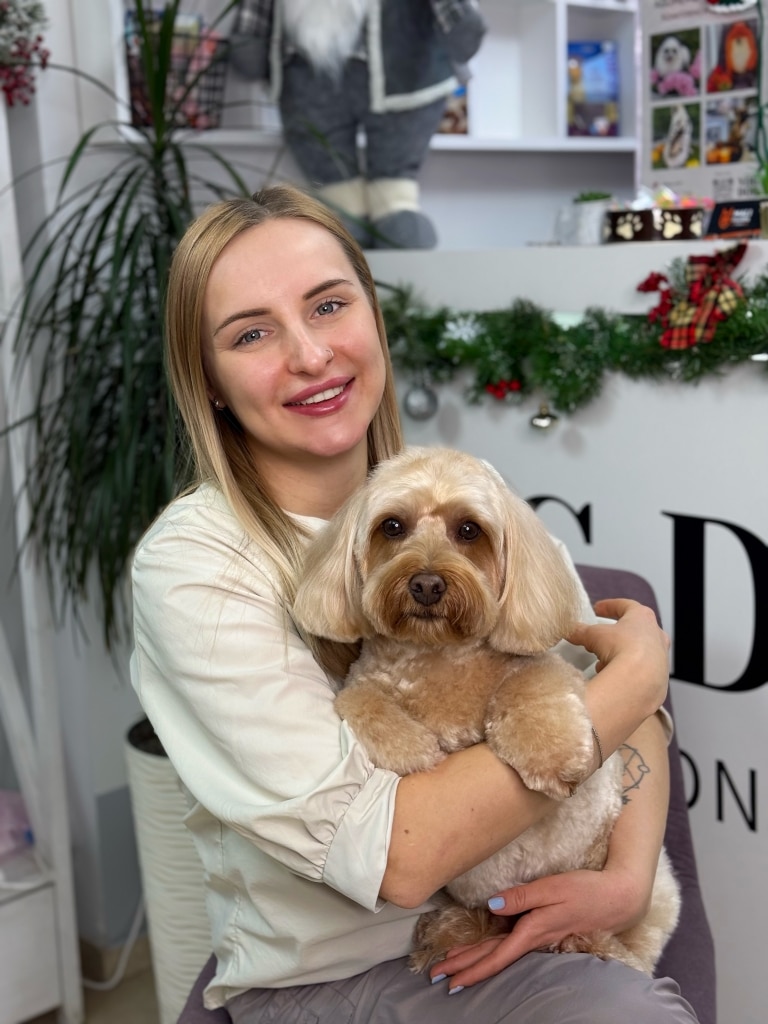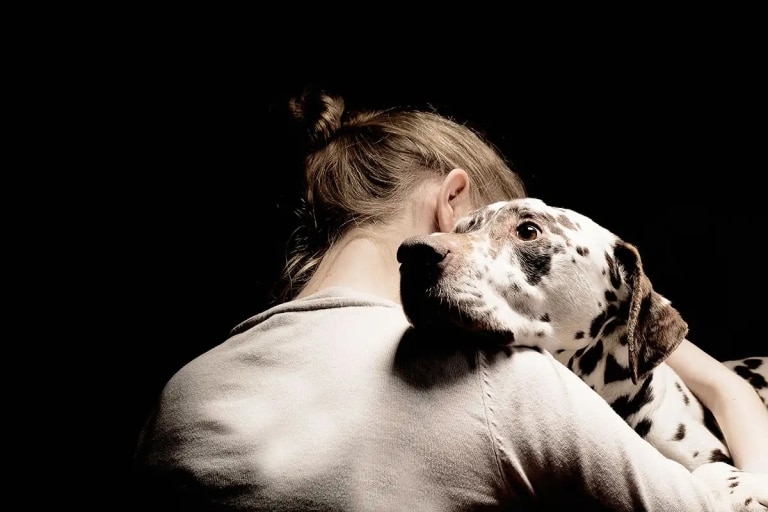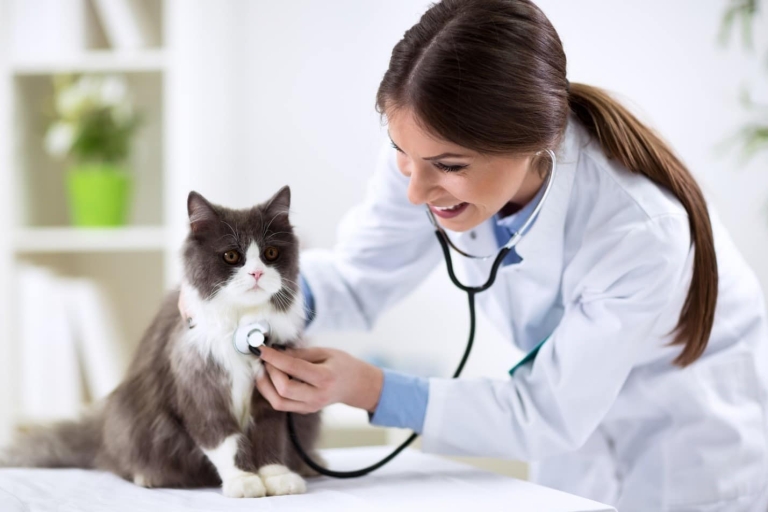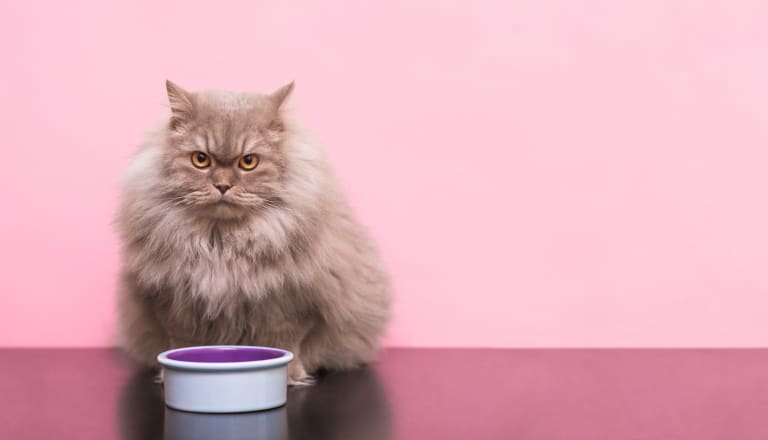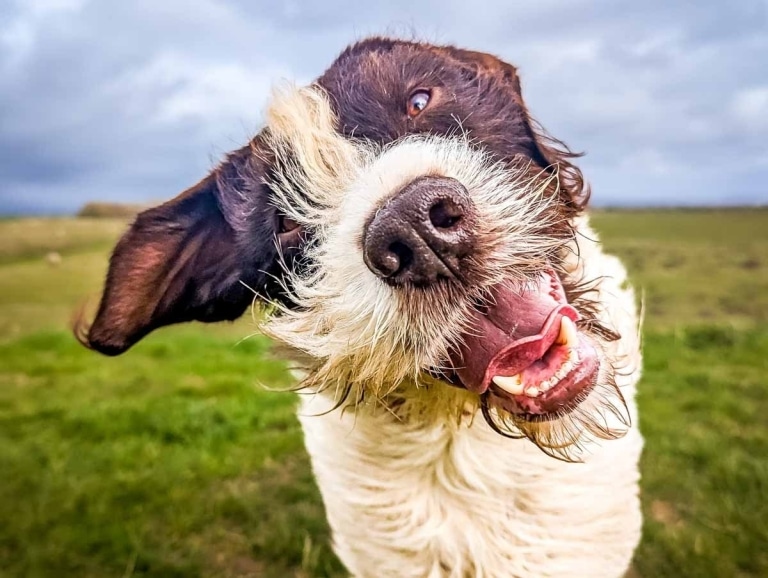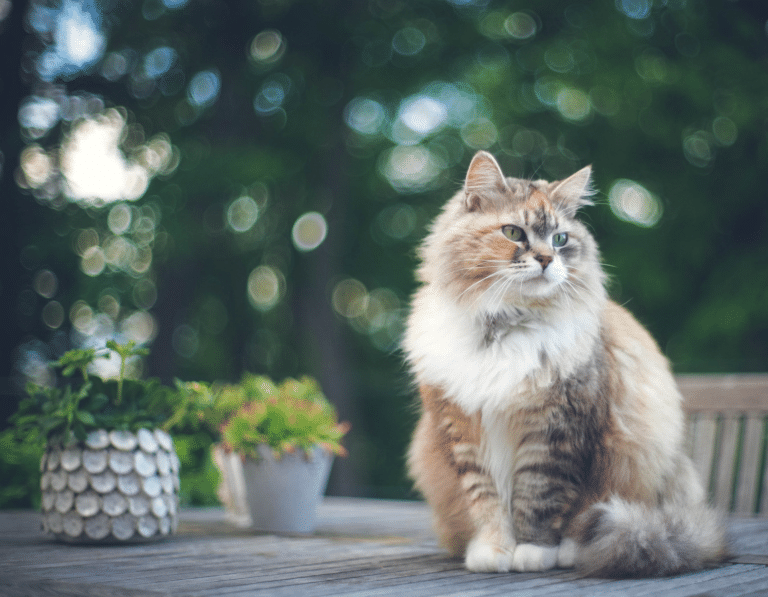The English Cocker Spaniel is a dog breed with a rich history and unique characteristics, an integral member of many families that requires special care and attention. In this article, we will consider in detail how to properly care for this charming breed, as well as delve into the peculiarities of care.
Description of the breed
The English Cocker Spaniel is a breed with a long history. Its roots go back to medieval England, where it was known as a hunting dog. The breed is descended from ancient spaniels, which were popular among bird hunters due to their incredible energy, endurance and agility. Over time, in order to improve hunting qualities, other breeds, such as springer and field spaniels, began to be added to the breeding of these dogs. This helped shape the modern look of the English Cocker Spaniel as we know it today.
English cocker spaniels are distinguished by their energy, sociability and playfulness. Their short but thick fur can have a variety of colors – from plain black, gold to multi-colored patterns. Dogs of this breed have long ears, which are often covered with wavy fur, and large, expressive eyes. The height of the standard English cocker spaniel ranges from 38-41 cm at the withers, and the weight is from 12 to 15 kg.
Cocker Spaniels are wonderful companions and extremely intelligent and adaptable dogs. They are easy to train, making them a great choice for families. However, like any breed, cocker spaniels require special care, particularly in the area of grooming, which is the basis of their healthy life.
Types of cocker spaniels
English cocker spaniel
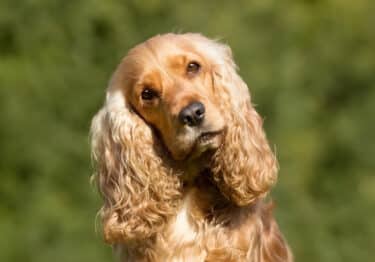
This breed is distinguished by its lively and friendly character. They have a strong build and long coat that requires regular grooming.
American cocker spaniel
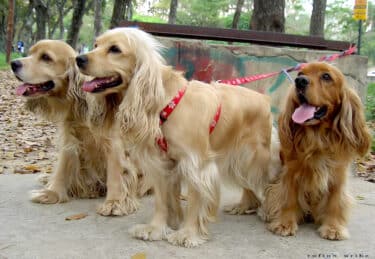
It differs from the English version in more compact dimensions and a round face. American Cockers also tend to be smaller and have rounder eyes and a shorter body. Their fur is thicker and longer, especially on the ears and chest. They are larger and stronger, with a more elongated muzzle.
Mini cocker spaniel
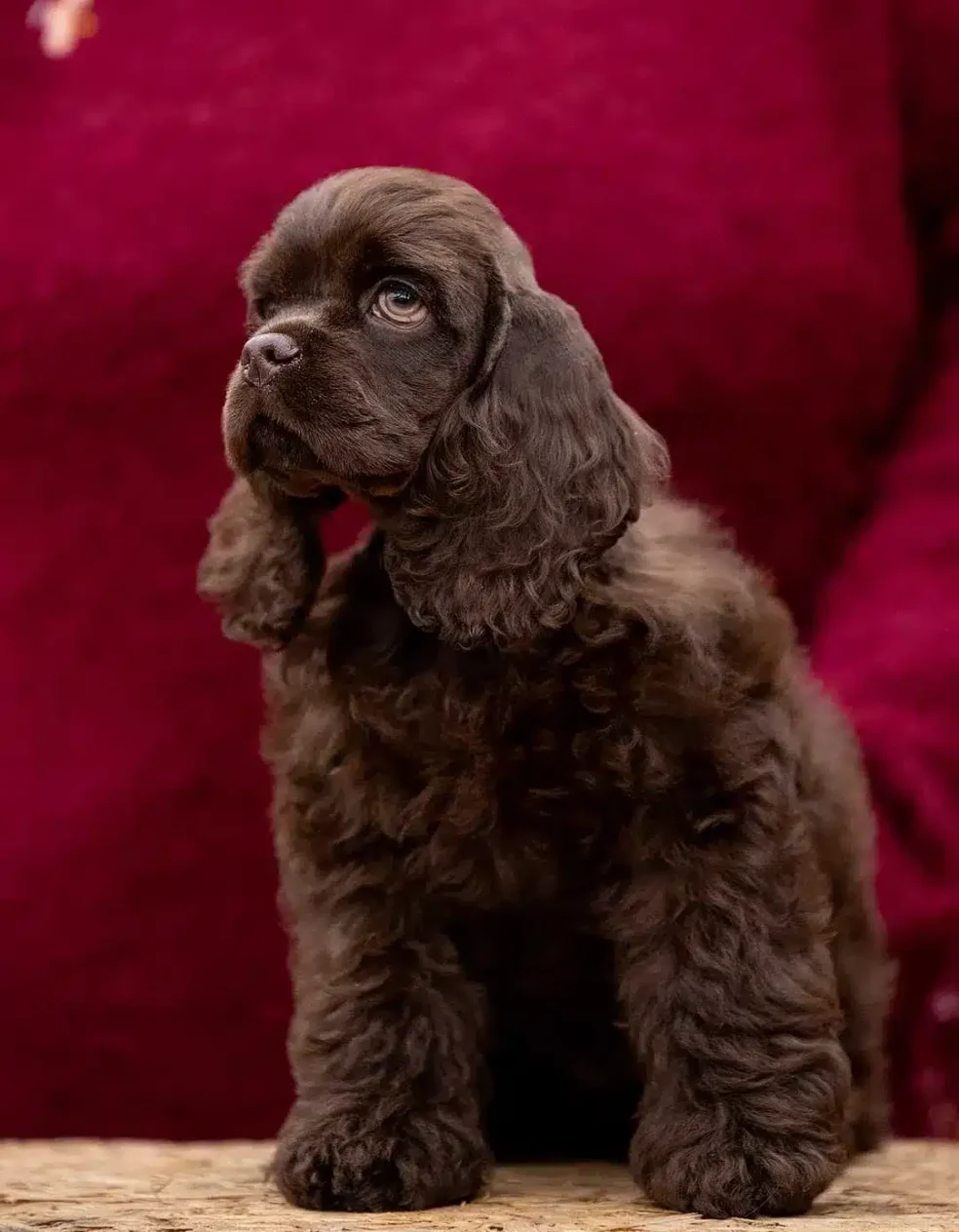
This breed variation is not particularly recognized and may vary from breeder to breeder. Often the result of crossing cocker spaniels with smaller breeds.
Cavalier King Charles Spaniel
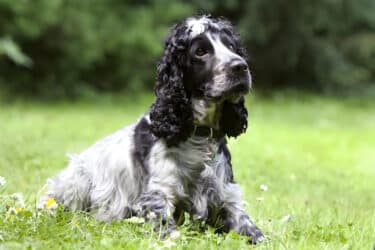
Although this breed is not technically a cocker spaniel, it is often associated with them due to the similarity in name and appearance. Cavaliers are small, loving dogs with long, silky coats that also require regular grooming. They are known for their gentle, friendly temperament and are often used as companion dogs.
Each of these species has its own unique characteristics and differences, from coat to temperament, making them unique and beautiful in their diversity.
There are also other lesser-known variations that arise due to regional features or mixing of breeds. They may have unique characteristics, but generally accepted breed standards remain dominant. Cocker crossbreeds are not popular, most strive for classic spaniel traits.
Peculiarities of behavior and characteristic features of cocker spaniel
The English Cocker Spaniel is known for its friendly, loyal and cheerful character. These dogs love to be the center of attention and are characterized by a high level of energy and playfulness. They get along well with children and other pets. Their intelligence and desire to please their owner make training a relatively easy task. However, their love of company means they can suffer from separation anxiety if left alone for long periods of time.
Cocker Spaniels also have hunting instincts, so they can show a high level of interest in birds and small animals. This breed requires regular exercise and psychological stimulation to avoid behavioral problems caused by boredom or energy overload.
An important feature is their loyalty and sensitivity to the emotions of their owners. They are sensitive to the mood of the people around them and may try to lighten the mood with their cheerful and playful behavior.
Peculiarities of caring for cocker spaniel puppies
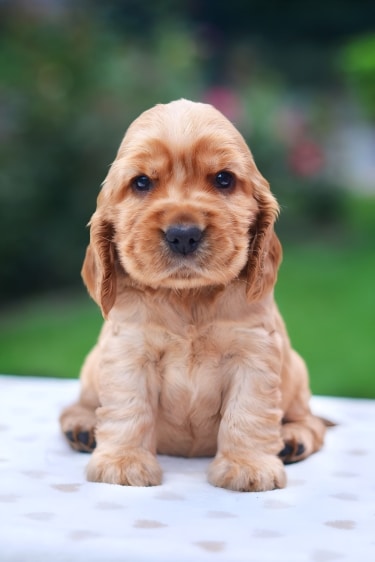
Caring for spaniel puppies requires special attention and care to ensure their healthy development and adaptation to family life. Here are some points to pay attention to:
Food
Providing a balanced diet is very important for puppies. Choose a quality puppy food that meets their energy needs and promotes healthy growth. It is important to follow the recommendations of the veterinarian regarding the amount and frequency of feeding.
Prevention and health care
Regular visits to the veterinarian for preventive examinations are an integral part of puppy care. Also provide the puppies with all necessary preventive measures against parasites.
Socialization and training
Early socialization and basic training are essential for a well-behaved and balanced dog. Command training, toilet training and exposure to different people, animals and situations will help cocker spaniel puppies to adapt and feel comfortable in different circumstances.
Grooming
Teach the puppy to feel comfortable during grooming, gradually getting used to brushing teeth, clipping claws, and combing fur.
Physical activity
Cocker spaniel puppies have a high energy level, so they need regular exercise. Short walks, games and other activities will help them expend energy and promote their physical development.
Emotional care
Do not forget about the emotional needs of puppies. They need a lot of attention, love and support to develop into happy and confident dogs.
Grooming of an adult English cocker spaniel
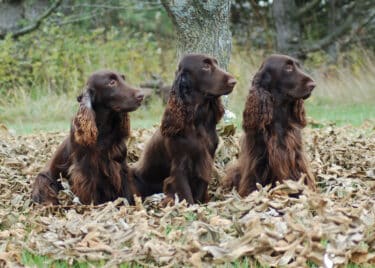
Daily hair care
The English Cocker Spaniel’s coat is long and thick, so it needs daily brushing to prevent tangles. Use specialized dog brushes and combs to gently comb the fur, especially in places where it tends to tangle, such as under the arms, behind the ears and on the legs. When combing, be careful not to hurt the dog.
Bathing frequency and techniques
It is recommended that Cocker Spaniels be bathed approximately once every 2-6 weeks, depending on their lifestyle and coat cleanliness. Before bathing, the wool should be thoroughly combed. Use a mild dog shampoo adapted to their coat type and make sure to rinse off the suds completely to avoid skin irritation. After bathing, carefully dry the wool with a towel and/or hair dryer, avoiding high temperatures.
Types of spaniel haircuts
Traditional Show Cut: This style is used primarily for show dogs. The coat on the ears, chest, belly and legs stays longer to create the breed’s signature look. This haircut requires careful and frequent grooming to keep the coat in good condition.
Sport cut: provides a shorter coat all over the dog’s body for convenience and ease of grooming. So it is recommended to trim active dogs and dogs of owners who do not have much time for daily hair care.
“Papillon haircut”: in this case, the hair on the ears remains long and lush, resembling the wings of a butterfly (papillon in French). This style requires extra ear care to keep them clean and tangle-free.
“Kennel Cut” or “Pet Cut”: This is a practical cut style with a shorter, easier-to-maintain coat. This is a great choice for dogs that spend most of their time at home or in the yard.
As for the frequency of clipping, it depends on the style and speed of the dog’s hair growth. In general, it is recommended to trim your English Cocker Spaniel every 6-8 weeks for most grooming styles. This helps to maintain the health of the coat and skin, and also ensures a neat appearance of the dog.
Professional dog grooming
Professional grooming of the English Cocker Spaniel is an integral part of caring for this breed. It includes a number of specialized procedures that are necessary for a healthy existence. Here are the main aspects of professional grooming:
Plucking the coat, not clipping: English cocker spaniels have a thick, silky coat that requires special care. Instead of using a clipper, groomers often resort to plucking – the manual removal of dead or damaged hair. This allows you to preserve the natural texture and health of the coat, especially on the dog’s back and sides.
Be careful with sensitive areas
Groomers pay special attention to areas with delicate skin, such as the ears, around the eyes and paws. The use of specialized tools and delicate techniques allows to avoid irritations and injuries. And the use of professional and natural cosmetics will keep the coat healthy and the skin free of irritation.
Differences from home grooming
Unlike home care, professional grooming is performed using specialized equipment and high-quality cosmetics. Groomers have the experience and knowledge that allows them to perform procedures efficiently and safely for the dog.
English cocker spaniel health and nutrition
Here are some tips for proper nutrition:
Balanced diet – cocker spaniels need a diet rich in proteins, fats, carbohydrates, vitamins and minerals. A high-quality commercial feed or a homemade diet formulated with the help of a veterinarian can provide this.
Vitamins and minerals – vitamins A, B, C, E, as well as minerals such as iron, zinc, copper and selenium are important for a healthy coat. They contribute to the shine of the coat, its strength and healthy growth.
Omega-3 and omega-6 fatty acids, found in fish oil and some vegetable oils, are vital for maintaining a healthy coat and skin.
Grooming in beauty salons for dogs V.O.G DOG in Kyiv
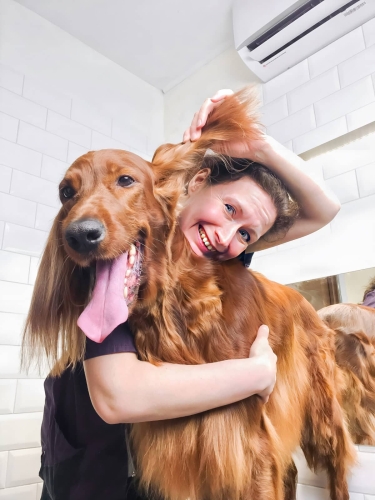
V.O.G DOG grooming salons in Kyiv offer professional care for English cocker spaniels, including their varieties. Masters in our salons have considerable experience working with this breed, which guarantees a high level of service. They take into account the characteristics of the coat and skin of each dog, providing an individual approach to each client. Professional grooming includes plucking, cutting, bathing, cleaning ears and eyes, as well as hygienic procedures that will support the dog’s beautiful appearance and good health.
